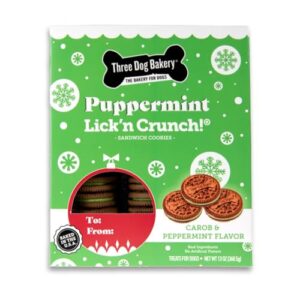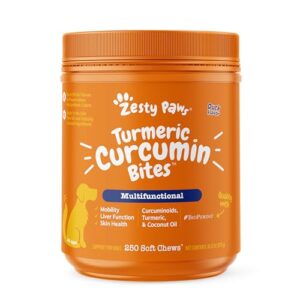This site is supported by our readers. We may earn a commission, at no cost to you, if you purchase through links.
Your dog just snatched a piece of pizza crust with oregano, and now you’re wondering if you need to panic. The short answer is that oregano won’t cause immediate harm in small culinary amounts, but the longer answer involves some important distinctions.
Unlike humans, dogs process herbs differently due to their shorter digestive transit time and unique gut chemistry, which means what’s perfectly safe sprinkled on your pasta might need careful consideration before becoming a regular addition to your pup’s bowl. Concentrated forms like oregano essential oil pose serious risks, while fresh or dried oregano carries a different safety profile entirely.
Understanding the difference between beneficial compounds like carvacrol and potentially toxic elements like thymol helps you make informed decisions about whether this Mediterranean staple deserves a place in your dog’s diet.
Table Of Contents
- Key Takeaways
- Can Dogs Safely Eat Oregano?
- Nutritional Value of Oregano for Dogs
- Health Benefits of Oregano for Dogs
- Potential Risks and Side Effects
- Safe Dosage and Administration Guidelines
- How to Introduce Oregano Into Dog Diets
- Oregano Alternatives for Canine Health
- When to Consult a Veterinarian About Oregano
- Top Oregano-Inspired Dog Products
- Frequently Asked Questions (FAQs)
- How much oregano can I give my dog?
- What happens if my dog eats oregano?
- Can dogs eat rosemary or oregano?
- Does oregano interact with common dog medications or vaccines?
- Can oregano be used to treat specific dog allergies?
- Is oregano safe for dogs with sensitive stomachs or IBS?
- Can oregano help with dog ear infections?
- Is oregano effective for treating dog skin conditions?
- Can oregano oil repel fleas and ticks naturally?
- Can oregano interfere with common dog medications?
- Conclusion
Key Takeaways
- Oregano is safe for dogs in small culinary amounts (a pinch for small dogs, up to 1/4 teaspoon for large dogs), but concentrated oregano oil poses serious toxicity risks due to compounds like thymol and should never be given without veterinary supervision.
- Dogs process oregano differently than humans because of their shorter digestive transit time (8-9 hours versus 24-72 hours) and protein-focused metabolism, making them more susceptible to gastrointestinal upset from herbs.
- Oregano contains beneficial compounds like carvacrol and rosmarinic acid that offer anti-inflammatory, antimicrobial, and antioxidant properties, but these health benefits only apply when the herb is used correctly in minimal amounts.
- You should consult your veterinarian before giving oregano to dogs taking blood thinners, diabetes medications, or other prescriptions, and avoid it entirely for puppies, pregnant dogs, nursing dogs, or pets with sensitive stomachs.
Can Dogs Safely Eat Oregano?
You’ve probably wondered whether that fresh oregano in your kitchen is safe to share with your dog. The short answer is yes, but there’s more to the story than a simple green light.
Let’s break down what you need to know about oregano’s safety profile, how dogs process this herb differently than we do, and clear up some common myths that might be steering you wrong.
Before introducing oregano to your dog’s diet, you might also want to review guidelines for other herbs like tarragon to understand safe feeding practices across different seasonings.
Oregano’s Basic Safety Profile for Dogs
You can safely offer your dog oregano in small culinary amounts, but concentrated forms like oil of oregano pose serious risks. While fresh or dried oregano adds flavor without immediate danger, pet nutrition experts caution against daily use due to oregano toxicity from compounds like thymol.
- Herbal interactions may occur with certain medications your dog takes
- Canine allergies can trigger digestive issues like vomiting or diarrhea
- Can dogs have oregano? Yes—sparingly and under supervision for dog health
Dogs should never be given oregano essential oil due to its toxic nature, as explained in this veterinary oregano safety overview.
Differences Between Human and Canine Digestion
Your dog’s digestion works differently than yours, which changes how oregano affects canine gastrointestinal health. Dogs lack salivary digestive enzymes for breaking down foods early, relying instead on gastric acid levels and intestinal transit to process nutrients. Their gut microbiome and nutrient absorption patterns prioritize protein over carbs, making gastrointestinal upset more likely when new herbs disrupt canine health and dog nutrition balance. For more details on the between dogs and humans, see this detailed overview.
Dogs digest herbs differently than humans, prioritizing protein over carbs and processing food faster, which makes oregano more likely to upset their stomachs
| Digestive Feature | Humans | Dogs |
|---|---|---|
| Salivary enzymes | Break down starches in mouth | Minimal to none present |
| Transit time | 24-72 hours total | 8-9 hours usually |
| Primary fuel | Carbohydrates & mixed diet | Protein & fat focus |
Common Misconceptions About Oregano Use
Many pet parents assume oregano works like a miracle herb, but believing these oregano myths can actually put your dog’s canine health at risk. Understanding herbal risks helps you avoid mistakes when choosing natural remedies for pet safety.
- Oregano oil isn’t a proven cure for infections—you still need veterinary care for serious canine nutrition and health issues.
- More doesn’t equal better—larger amounts increase herb toxicity and stomach upset.
- Essential oils differ from culinary herbs—concentrated oregano oil poses real dangers.
- Natural remedy doesn’t mean risk-free—always verify safety before feeding oregano.
Nutritional Value of Oregano for Dogs
Oregano isn’t just a pizza topping—it actually packs some real nutritional value that might benefit your dog’s health. This herb contains vitamins, minerals, and plant compounds that work together in different ways.
Let’s look at what’s actually inside oregano and how these nutrients might support your dog’s wellbeing.
Key Vitamins and Minerals in Oregano
Think of oregano as a tiny mineral powerhouse for your pup. A tablespoon of dried oregano delivers impressive vitamin K benefits for blood clotting and bone health, along with iron supplements that support oxygen transport. You’ll also find calcium intake support for strong teeth, plus manganese and zinc that aid metabolism.
While oregano oil concentrates these minerals, whole-herb forms offer the safest mineral balance for natural remedies in canine diets.
Antioxidant Properties and Benefits
Powerful phenolic compounds in oregano drive free radical scavenging, protecting your dog’s cells from oxidative stress reduction. Carvacrol and rosmarinic acid—key phytochemical benefits—neutralize harmful molecules while supporting antioxidant enzymes like superoxide dismutase.
These cellular protection mechanisms make oregano a natural remedy worth considering, though oregano oil concentrates these herbal remedies for pets to levels requiring careful dosing under veterinary guidance.
Natural Compounds in Oregano
Essential oil composition in oregano reveals carvacrol—usually 58 to 60 percent of the phenol composition—alongside thymol as primary antimicrobial agents. The terpene profile includes γ-terpinene and p-cymene, enhancing this natural remedy’s bioactivity.
While these compounds offer health benefits, oregano’s potency means that dogs can experience adverse reactions from oregano oil, so careful dosing is essential.
Polyphenol content like rosmarinic acid adds free-radical defense. These carvacrol effects and synergistic compounds deliver oregano’s health benefits, though concentration varies by herb origin and processing method.
Health Benefits of Oregano for Dogs
When used correctly, oregano can offer your dog more than just flavor. This herb packs some genuine therapeutic potential that might support your pet’s health in meaningful ways.
Let’s look at the specific benefits oregano brings to the table for canine wellness.
Anti-Inflammatory Effects
Inflammation can become your dog’s silent enemy, triggering joint pain and digestive troubles. Oregano contains powerful compounds called carvacrol and thymol that help reduce oxidative stress and support a balanced immune response.
These anti-inflammatory effects work by blocking inflammatory mediators while maintaining gut health. Think of oregano as a natural remedy that gently nudges your dog’s body toward better inflammation reduction without overactivating defenses.
Antibacterial and Antifungal Properties
Oregano oil acts as a natural guardian against invaders your dog’s immune system might struggle to fight. Carvacrol and thymol disrupt bacterial cell membranes, offering microbe control without harsh chemicals.
Here’s how these herbal remedies deliver health benefits:
- Block common bacteria like E. coli and Staph aureus
- Combat fungal infections including Candida species
- Reduce bacterial resistance through membrane disruption
- Support herbal therapy when properly diluted for topical use
Support for Digestive Health
Small amounts of oregano can calm your dog’s digestive system through gentle antimicrobial action that bolsters microbiome balance and stomach comfort. While it won’t supply significant digestive enzymes or fiber benefits, this herbal remedy for dogs may ease mild gastrointestinal upset when added to meals.
Always introduce oregano gradually—monitoring for gut health changes ensures canine dietary supplements improve rather than disrupt digestive health.
Immune System Boosting Effects
Strengthening your dog’s immune response doesn’t require complicated supplements when oregano offers antioxidant benefits through carvacrol and polyphenols.
These natural remedies for pets support microbiome health while promoting inflammation reduction in the gut lining, creating conditions for better nutrient uptake.
The immune system gains from oregano’s vitamin A and C content, though oregano oil requires veterinary guidance to ascertain health benefits outweigh concentration risks.
Potential Risks and Side Effects
While oregano offers real benefits for your dog, it’s not without its downsides when used incorrectly. Certain compounds in the herb can cause problems if your dog gets too much, and some dogs shouldn’t have it at all.
Let’s look at the specific risks you need to watch for.
Toxic Compounds in Oregano (Thymol)
The primary culprit behind oregano’s potential dangers is thymol, a phenolic compound that gives the herb its antimicrobial punch. At high concentrations—especially in oil of oregano and other herbal supplements—thymol effects can irritate your dog’s mucous membranes and digestive tract.
Herb toxicity in pets hinges on dose: culinary pinches pose minimal risk, while concentrated forms cross into dangerous toxicity levels.
Symptoms of Oregano Overconsumption
Knowing the toxic threshold helps you spot trouble early. Watch for these warning signs if your dog gets into oregano oil or consumes excessive amounts:
- Digestive issues like vomiting, diarrhea, or abdominal cramping within minutes to hours
- Allergic responses including itching, hives, or mouth redness after contact
- Neurological signs such as lethargy, disorientation, or unusual restlessness
Gastrointestinal upset tops the list, but respiratory problems and inflammation can also signal toxic reactions requiring immediate veterinary attention.
Risks for Puppies, Pregnant, or Nursing Dogs
Puppy toxicity becomes a bigger concern with oregano because young digestive systems can’t handle intense compounds like thymol. Pregnancy risks include uterine stimulation and potential developmental interference, while nursing complications may alter milk flavor or trigger dehydration from diarrhea. Canine allergies can surface as itching or respiratory distress.
Always seek veterinary guidance before offering oregano for dogs during these vulnerable life stages.
Safe Dosage and Administration Guidelines
Getting the dosage right is where many pet owners stumble, even with the best intentions. The amount of oregano that’s safe for your dog depends on their size, the form you’re using, and how you’re administering it.
Let’s break down the specifics so you can use oregano confidently without crossing into risky territory.
Recommended Amounts by Dog Size
Your dog’s weight determines how much oregano is safe in their diet. For small dogs up to 10 pounds, use just a pinch per day. Medium dogs (11–40 pounds) can have up to 1/8 teaspoon daily, while large dogs over 40 pounds shouldn’t exceed 1/4 teaspoon.
Always mix oregano into regular food to avoid concentrated exposure and prevent herbal toxicity levels from rising.
Fresh Vs. Dried Oregano for Dogs
Both forms of oregano bring benefits to canine nutrition, but they differ in intensity and digestive impact. Fresh oregano offers gentler stomach tolerance with bright flavor notes, while dried oregano concentrates essential oils like carvacrol and thymol—making it stronger per teaspoon.
For pet wellness and herbal safety, fresh works best as a finishing touch, whereas dried suits cooked meals when used sparingly.
Safe Use of Oregano Oil
Because oregano oil is highly concentrated, you’ll need to dilute it before any topical or oral use to prevent tissue irritation.
Many alternative veterinarians recommend against routine long-term use without guidance, as thymol and carvacrol can trigger stomach upset in dogs.
Never give oregano oil to puppies, pregnant, or nursing dogs unless your vet approves the specific product and dosage.
How to Introduce Oregano Into Dog Diets
If you’ve decided oregano might benefit your dog, the next step is introducing it carefully and watching how your pet responds. Start with the smallest possible amount and work your way up gradually, whether you’re sprinkling dried oregano on kibble or mixing fresh leaves into homemade treats.
Pay close attention to your dog’s behavior and digestion during this trial period, since even safe herbs can cause unexpected reactions in individual animals.
Adding Oregano to Food or Treats
Mixing oregano for dogs into their regular dog diet doesn’t require fancy methods—just a light hand and attention to moderation.
You can sprinkle a pinch of dried oregano directly over kibble or wet food for a palatability boost, or blend fresh leaves into homemade treat recipes.
Gradual integration helps your dog adjust to the new flavor while respecting dietary considerations for dogs when introducing herbs for dogs.
Signs of Adverse Reactions
Even tiny amounts can trigger reactions in sensitive dogs, so watch for toxicity symptoms within the first 24 hours. Vomiting, diarrhea, or excessive drooling signal adverse effects you shouldn’t ignore. Skin infections, hives, or respiratory issues like wheezing point to allergy alerts requiring immediate vet attention.
When wondering can dogs have oregano, these reaction signs help you recognize poisoning risks before they escalate—especially with concentrated oregano oil.
Oregano Alternatives for Canine Health
If you’re hesitant about using oregano for your dog, you’ll be glad to know several other herbs offer similar health benefits without the same concerns. Parsley, basil, and thyme are three veterinarian-approved alternatives that can support your dog’s wellness in different ways.
Let’s look at how each of these herbs compares to oregano and what they bring to the table.
Parsley as a Dog-Friendly Herb
If you’re looking for a gentler alternative to oregano for dogs, parsley offers a fresh option worth considering. This curly-leafed herb brings antioxidant support through vitamins A, C, and K while promoting canine wellness without the risk profile oregano carries. Here’s what makes parsley nutrition valuable:
- Fresh breath benefits from natural chlorophyll content
- Mild diuretic effects that support dog digestion and urinary tract health
- Minimal herb interactions when used sparingly in meals
- Low pet allergies risk compared to stronger herbal supplements like oregano oil
Start with tiny pinches—about a quarter teaspoon per 10 pounds of body weight—and watch for reactions. Can dogs have oregano safely? Maybe, but parsley provides similar antioxidant perks with fewer concerns for dog health overall.
Basil and Thyme Benefits
Two gentle immune boosters stand out in canine nutrition: basil and thyme. Basil delivers beta carotene and flavonoids for eye health and antioxidant support, while thyme provides thymol and carvacrol to neutralize free radicals.
Both serve as natural remedies and digestive aids when you introduce them gradually—think pinches, not heaps—supporting canine wellness without the herb interactions oregano oil can trigger in natural health for pets.
Comparing Oregano With Other Safe Herbs
When you’re weighing herb interactions in pet nutrition, oregano’s potency deserves context. Here’s how it stacks up against dog-friendly herbs in natural pet care:
- Parsley offers milder vitamin K with less thymol irritation risk
- Basil delivers beta carotene without oregano’s pungent oils
- Thyme shares antimicrobial traits but in gentler ratios
- Rosemary provides piney antioxidants distinct from oregano’s carvacrol
- Savory adds peppery notes with lower essential oil intensity
Each aids canine wellness through different herbal remedies pathways.
When to Consult a Veterinarian About Oregano
While oregano can offer health benefits for your dog, there are times when professional veterinary input isn’t just helpful—it’s essential. Certain medical conditions, medications, and reactions require expert evaluation before you add any herbal supplement to your dog’s routine.
Let’s look at the specific situations where you’ll want to pick up the phone and call your vet.
Drug Interactions and Medical Conditions
Before adding oregano to your dog’s routine, you need veterinary guidance if your pet takes anticoagulants, diabetes medications, or anticonvulsants. Oregano’s natural compounds can affect blood clotting, blood sugar levels, and liver enzyme activity, creating medication interactions that shift toxicity levels.
Pregnant or nursing dogs require extra caution, as oregano may interfere with pregnancy-related treatments despite its immune system health benefits.
Recognizing Allergic or Toxic Reactions
Watch for reaction symptoms like excessive drool, vomiting, diarrhea, or skin infections within hours of oregano exposure. Toxic herbs for dogs trigger emergency care situations when you notice lethargy, tremors, or breathing changes.
Contact poison control immediately if your pet shows toxicity signs after consuming oil of oregano. Allergy tests help identify sensitivities before serious reactions develop, ensuring proper pet care and safety.
Veterinary Guidance on Herbal Supplements
Your veterinarian provides integrative medicine guidance by reviewing your dog’s health history before recommending herbal supplements. Veterinary oversight ensures supplement safety through proper dosing and monitoring for drug interactions.
Integrative veterinarians trained in pet nutrition understand herbal regulation standards and can recommend veterinary-grade products. Always seek vet advice before starting oregano or any herbal supplement to protect your dog’s long-term veterinary care needs.
Top Oregano-Inspired Dog Products
If you’re interested in incorporating oregano’s benefits into your dog’s routine without the guesswork, there are several commercial products designed with canine safety in mind. These treats and supplements use herbs in carefully measured amounts, taking the worry out of dosing.
Here are three trusted options that bring oregano-inspired wellness to your dog’s bowl.
1. Three Dog Bakery Peppermutt Cookies
If you’re looking for a festive treat that skips the oregano but still delivers fresh flavor, Three Dog Bakery Peppermutt Cookies offer a peppermint twist your pup might enjoy. These crunchy sandwich cookies feature green peppermint crème filling made with carob instead of chocolate, keeping things dog-safe.
At roughly 45 calories per cookie, they work well as training rewards or special occasion snacks. Just monitor the package upon arrival—some customers report damaged shipments—and watch for any stomach sensitivity since peppermint can affect some dogs differently.
| Best For | Dog owners wanting a festive, breath-freshening treat for training or holiday celebrations with their pup. |
|---|---|
| Form | Cookie |
| Life Stage | All Life Stages |
| Primary Ingredient | Carob |
| Natural Ingredients | Yes |
| Weight | 0.95 Ounces |
| Special Features | No Artificial Additives |
| Additional Features |
|
- Real peppermint flavor helps freshen breath naturally
- Crunchy texture dogs love with no artificial additives
- Works great as training rewards at about 45 calories each
- Packages sometimes arrive damaged or open
- Peppermint may upset sensitive stomachs
- Contains carob, which some dogs with dietary restrictions can’t have
2. K9 Granola Factory Pumpkin Dog Treats
For a treat that pairs pumpkin’s digestive benefits with parsley instead of oregano, K9 Granola Factory Pumpkin Crunchers deliver a crunchy, tooth-friendly option baked in the USA.
Each 14-ounce bag features pumpkin as the first ingredient, complemented by oats, barley, and cinnamon. With approximately 24 calories per biscuit and around 8 percent crude fat, they work well for training or daily snacking.
Just know some customers receive crumbly shipments, and the firm texture may not suit every dog’s digestive comfort.
| Best For | Dog owners looking for a wheat-free, crunchy treat made with pumpkin and natural ingredients that can support dental health and digestion. |
|---|---|
| Form | Biscuit |
| Life Stage | All Life Stages |
| Primary Ingredient | Pumpkin |
| Natural Ingredients | Yes |
| Weight | 14 Ounces |
| Special Features | Antioxidant Rich |
| Additional Features |
|
- Pumpkin-first recipe is free from wheat, corn, and soy, making it suitable for dogs with common grain sensitivities
- Crunchy texture helps clean teeth during chewing while providing natural antioxidants
- Made in the USA with wholesome ingredients like oats, sweet potato, and parsley across four flavor options
- Some customers report receiving broken or crumbly treats due to shipping issues
- The hard, firm texture may be too tough for some dogs and could potentially cause digestive discomfort
- Not certified organic, which may be a drawback for pet owners seeking organic-only products
3. Zesty Paws Turmeric Dog Supplement
If you want a supplement that skips oregano but delivers similar antioxidant power, Zesty Paws Turmeric Curcumin Bites blend 95 percent curcuminoids with BioPerine for enhanced absorption.
Each duck-flavored soft chew combines organic turmeric, coconut oil, and Qmin+ curcumin to support joint mobility, digestive function, and immune health across all life stages.
The 250-count jar offers convenient daily dosing, though some dogs reject the taste and the bright orange formula can stain surfaces—making careful handling essential.
| Best For | Dogs needing joint support and antioxidant benefits without oregano-based formulas, especially those whose owners want a turmeric supplement with enhanced absorption. |
|---|---|
| Form | Soft Chew |
| Life Stage | All Life Stages |
| Primary Ingredient | Organic Turmeric |
| Natural Ingredients | Yes |
| Weight | 2.16 Pounds |
| Special Features | Joint Support |
| Additional Features |
|
- 95% curcuminoids with BioPerine boost absorption and deliver strong anti-inflammatory support for joints, digestion, and immune health
- Organic turmeric plus coconut oil provide natural, multi-system benefits for dogs at any life stage
- 250-count jar offers excellent value and convenient daily dosing for long-term supplementation
- Some dogs refuse the duck flavor or reject the smell, limiting effectiveness
- Bright orange formula can stain floors, furniture, and dog bedding if chews are dropped or chewed messily
- Formula changes have reportedly affected taste, and the company may not accept returns
Frequently Asked Questions (FAQs)
How much oregano can I give my dog?
For small dogs under 20 pounds, use just a pinch per meal. Medium dogs can tolerate 1/4 teaspoon daily, while large dogs may handle up to 1/2 teaspoon occasionally—not every day.
What happens if my dog eats oregano?
If your dog eats oregano, watch for digestive upset like vomiting or diarrhea within 24 hours. Most dogs tolerate small amounts well, but larger quantities can cause stomach irritation and discomfort.
Can dogs eat rosemary or oregano?
Yes, both herbs are safe for your dog in small, measured amounts—use a pinch of fresh or dried leaves per meal as a flavorful garnish, not a dietary staple.
Does oregano interact with common dog medications or vaccines?
Oregano can alter blood thinning medications’ effectiveness, interact with diabetes drugs by affecting blood sugar, and potentially influence heart medications like ACE inhibitors.
Always consult your vet before combining oregano with any prescription medicines.
Can oregano be used to treat specific dog allergies?
Like tossing a coin and hoping for heads, oregano may support your dog’s skin health when paired with veterinary allergy care, but it won’t replace prescribed medications or address underlying sensitivities alone.
Is oregano safe for dogs with sensitive stomachs or IBS?
For dogs with sensitive stomachs or IBS, oregano can worsen symptoms like nausea and diarrhea. It’s best to avoid oregano altogether and choose gentler options like plain pumpkin instead.
Can oregano help with dog ear infections?
Up to 20% of canine ear infections involve yeast overgrowth. Oregano’s carvacrol and thymol compounds show antimicrobial potential, but you shouldn’t apply oregano oil without veterinary guidance—improper use can irritate sensitive ear canals or worsen infections.
Is oregano effective for treating dog skin conditions?
When properly diluted, oregano oil’s antimicrobial compounds may support minor skin irritation, but it’s not a replacement for vet-prescribed treatments.
Always test on a small patch first to avoid contact dermatitis.
Can oregano oil repel fleas and ticks naturally?
Oregano oil may deter some fleas and ticks on contact due to carvacrol, but it’s not a reliable sole prevention method.
You’ll still need veterinary-recommended products and regular grooming for complete protection.
Can oregano interfere with common dog medications?
Yes, oregano can interact with blood thinners, diabetes medications, and anti-hypertensives in dogs. Its concentrated compounds may alter drug metabolism and effectiveness, so you should always consult your veterinarian before combining oregano with prescribed medications.
Conclusion
The next time oregano appears on your kitchen counter, you’ll know exactly how to navigate the decision. Whether dogs can eat oregano safely depends on form, dosage, and individual health factors—not black-and-white rules.
Fresh or dried culinary amounts pose minimal risk for most healthy dogs, while concentrated oils demand extreme caution. Trust your observations, start conservatively, and remember that your veterinarian remains your most valuable resource when herbs enter uncertain territory. Your dog’s wellbeing always deserves that extra measure of care.


















